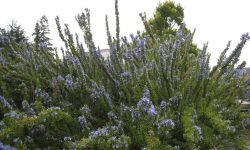Herbal Remedies for Stress and Anxiety
Introduction to Herbal Remedies for Stress and Anxiety
In today’s fast-paced and demanding world, many of us experience stress and anxiety on a regular basis. While there are various treatment options available, more people are turning to herbal remedies as a natural and holistic approach to managing these common conditions. This blog post aims to provide an introduction to herbal remedies for stress and anxiety, delving into their effectiveness, how they work, popular choices, and important considerations. Whether you’re seeking alternatives to pharmaceuticals or simply curious about the benefits and drawbacks of herbal remedies, this guide will help you navigate the world of natural stress relief.
Introduction to herbal remedies for stress and anxiety
Stress and anxiety have become common issues in today’s fast-paced world. As more and more people experience these mental health challenges, the demand for effective remedies has also increased. One such avenue that has gained popularity is herbal remedies. In this blog post, we will provide an introduction to herbal remedies for stress and anxiety and discuss their potential benefits.
Herbal remedies, also known as botanical remedies, are derived from plants and their various parts such as leaves, flowers, stems, or roots. These natural substances have been used for centuries in traditional medicine systems, such as Ayurveda and Traditional Chinese Medicine, to promote overall well-being and help manage various health conditions.
The use of herbal remedies for stress and anxiety is based on the belief that certain plant compounds possess calming, soothing, and mood-enhancing properties. These compounds may help reduce feelings of stress, promote relaxation, and improve overall mental well-being. Some commonly used herbs for stress and anxiety include chamomile, lavender, lemon balm, passionflower, and valerian root.
- Chamomile: Known for its calming properties, chamomile is often consumed as a tea to promote relaxation and improve sleep quality.
- Lavender: The scent of lavender has been found to have a soothing effect and may help alleviate feelings of anxiety and promote better sleep.
- Lemon balm: Lemon balm is known for its calming and uplifting effects. It is commonly used to reduce stress and anxiety symptoms.
- Passionflower: This herb has shown potential in reducing anxiety symptoms and improving sleep quality. It is often used in combination with other herbs.
- Valerian root: Valerian root has been used for centuries as a natural remedy for insomnia and anxiety. It acts as a sedative and may help promote better sleep.
| Herb | Main Benefits |
|---|---|
| Chamomile | Calming, relaxation, improved sleep quality |
| Lavender | Soothing, anxiety relief, better sleep |
| Lemon balm | Calming, uplifting, stress reduction |
| Passionflower | Anxiety reduction, better sleep quality |
| Valerian root | Sedative, insomnia relief |
While herbal remedies can be a natural and potentially effective option for managing stress and anxiety, it’s important to note that they may not work for everyone. The response to herbal remedies can vary from person to person, and it’s essential to consult with a healthcare professional before incorporating them into your wellness routine.
In conclusion, herbal remedies offer an alternative approach to managing stress and anxiety. With their long history of traditional use and potential calming effects, these natural substances provide an intriguing option for those seeking non-pharmaceutical solutions. However, it is crucial to remember that individual experiences can differ, and professional guidance is advised. Stay tuned for upcoming blog posts in which we will delve deeper into specific herbal remedies and their mechanisms of action!
Understanding the causes of stress and anxiety
Stress and anxiety have become increasingly common in today’s fast-paced and demanding society. Understanding the causes of these mental health issues is crucial in order to effectively manage and overcome them. While everyone experiences stress and anxiety to some degree, it is important to recognize the factors that contribute to their development and persistence.
1. Environmental Factors: The environment we live in plays a significant role in our stress and anxiety levels. High-pressure work environments, financial difficulties, and major life changes such as moving or divorce can all contribute to feelings of stress and anxiety. Additionally, exposure to traumatic events such as natural disasters or accidents can have a long-lasting impact on our mental well-being.
2. Biological Factors: Research has shown that there is a biological basis for stress and anxiety. Some individuals may be genetically predisposed to developing these conditions, making them more susceptible to experiencing heightened levels of stress. Imbalances in brain chemistry and hormonal changes can also contribute to the development and exacerbation of stress and anxiety.
3. Psychological Factors: Our thoughts, beliefs, and cognitive processes can greatly influence our stress and anxiety levels. Negative thinking patterns, unrealistic expectations, and the inability to cope with life’s challenges can all contribute to increased levels of stress and anxiety. Additionally, individuals with certain personality traits such as perfectionism or a tendency towards worry may be more prone to experiencing these mental health issues.
It is important to recognize that the causes of stress and anxiety are complex and multifaceted. They can vary greatly from person to person and may be influenced by a combination of factors. By understanding the underlying causes, individuals can take steps towards managing and reducing their stress and anxiety levels. Identifying triggers, seeking support from others, and practicing stress-reduction techniques can all be effective strategies in navigating the challenges of stress and anxiety.
List of Causes of Stress and Anxiety:
| Environmental Factors | Biological Factors | Psychological Factors |
|---|---|---|
| High-pressure work environments | Genetic predisposition | Negative thinking patterns |
| Financial difficulties | Imbalances in brain chemistry | Unrealistic expectations |
| Major life changes | Hormonal changes | Inability to cope with challenges |
| Exposure to traumatic events | Personality traits (perfectionism, worry) |
Herbal remedies for stress and anxiety: How do they work?
Stress and anxiety have become increasingly common in modern society, affecting people of all ages and backgrounds. While there are various treatment options available, many individuals are turning to herbal remedies as a natural and holistic approach to managing their symptoms. In this blog post, we will explore the topic of herbal remedies for stress and anxiety and delve into how they work to provide relief.
Herbal remedies for stress and anxiety have been used for centuries in traditional medicine systems such as Ayurveda and Traditional Chinese Medicine (TCM). These remedies are derived from various plants and herbs, each with their own unique properties and benefits. The active compounds present in these herbs interact with the body’s systems, including the nervous system and the brain, to help alleviate stress and anxiety.
One key way in which herbal remedies work is by influencing neurotransmitters in the brain. Neurotransmitters are chemical messengers that play a crucial role in regulating mood, emotions, and stress response. Certain herbs, such as passionflower and valerian root, have been found to enhance the production of gamma-aminobutyric acid (GABA), a neurotransmitter that has a calming effect on the brain. This can help reduce feelings of stress and anxiety.
- Passionflower: Passionflower has been traditionally used to promote relaxation and improve sleep quality. It is believed to work by increasing GABA levels in the brain.
- Valerian root: Valerian root is another herb known for its calming properties. It has been used to alleviate nervousness and restlessness, helping individuals feel more relaxed.
- Ashwagandha: Ashwagandha is an adaptogenic herb that helps the body cope with stress. It works by reducing levels of cortisol, often referred to as the “stress hormone.”
In addition to influencing neurotransmitters, some herbal remedies also have antioxidant and anti-inflammatory effects on the body. Chronic stress and anxiety can lead to increased inflammation and oxidative stress, which can negatively impact overall health. Herbs such as chamomile and rhodiola have been found to possess these beneficial effects, helping to mitigate the physiological effects of stress.
| Herb | Main Benefits |
|---|---|
| Chamomile | Promotes relaxation, reduces inflammation |
| Rhodiola | Improves energy levels, boosts mood |
It’s important to note that herbal remedies for stress and anxiety may not work the same way for everyone. Each person’s needs and responses to these remedies can vary. It’s advisable to consult with a healthcare professional or a qualified herbalist to determine the most suitable herbs and dosages for your individual situation. They can provide personalized guidance and help ensure safe and effective use of herbal remedies.
In conclusion, herbal remedies offer a natural and holistic approach to managing stress and anxiety. Their effects are multifaceted, influencing neurotransmitters, reducing inflammation, and providing antioxidant support. By understanding how these remedies work, individuals can make informed choices about incorporating them into their stress-relief routines. Remember, it’s always essential to seek professional guidance when using herbal remedies to ensure their safe and optimal use.
Exploring popular herbal remedies for stress and anxiety
Stress and anxiety have become increasingly common in today’s fast-paced world. Many people are turning to herbal remedies as a natural and holistic approach to managing these mental health issues. In this blog post, we will be exploring some of the most popular herbal remedies for stress and anxiety.
1. Chamomile: Chamomile is a well-known herb that has been used for centuries to promote relaxation and relieve stress. It contains compounds that have a calming effect on the nervous system, helping to reduce anxiety and promote sleep. Chamomile tea is a popular and easy way to incorporate this herb into your daily routine.
2. Lavender: Lavender is another herb that is known for its soothing properties. The scent of lavender has been shown to decrease heart rate and blood pressure, promoting a sense of calmness. You can enjoy the benefits of lavender by using essential oil in a diffuser or adding it to bathwater for a relaxing soak.
3. Valerian Root: Valerian root is a powerful herb that has been used for centuries as a natural remedy for anxiety and insomnia. It works by increasing the levels of gamma-aminobutyric acid (GABA) in the brain, which has a calming effect on the nervous system. Valerian root is commonly taken in supplement form or brewed into a tea.
The benefits and drawbacks of using herbal remedies
Herbal remedies have long been used as a natural approach to treating a variety of ailments, including stress and anxiety. These remedies are derived from plants and plant-based products, such as extracts, teas, and oils. They are often praised for their potential benefits and minimal side effects compared to pharmaceutical drugs. However, like any form of treatment, herbal remedies for stress and anxiety come with their own set of benefits and drawbacks.
One of the biggest benefits of using herbal remedies is their natural and holistic approach. Many people prefer this alternative to pharmaceutical drugs, as they often contain fewer synthetic chemicals and have a gentler effect on the body. Herbal remedies are often seen as a more sustainable and eco-friendly option, as they are derived from natural sources and don’t contribute to environmental pollution. Moreover, these remedies can be easily obtained without a prescription and can be used in conjunction with other stress-relief techniques.
However, it’s important to acknowledge the potential drawbacks of using herbal remedies for stress and anxiety. While they may be natural, herbal remedies are not always risk-free. Some individuals may experience allergic reactions or adverse side effects from certain herbs. Additionally, the potency and effectiveness of herbal remedies can vary depending on the quality and preparation method. It’s crucial to consult with a healthcare professional or an experienced herbalist before incorporating herbal remedies into your stress-reduction routine.
Furthermore, it’s worth noting that not all herbal remedies have been extensively studied or approved by regulatory authorities. The lack of scientific research and standardized regulations can make it difficult to determine the safety and efficacy of certain herbs. This can lead to misinformation and unsubstantiated claims surrounding herbal remedies for stress and anxiety. It’s essential to critically evaluate the information available and rely on reliable sources when considering herbal remedies as a treatment option.
In conclusion, herbal remedies for stress and anxiety offer a natural and holistic approach to managing these conditions. They can provide numerous benefits, such as minimal side effects and a more sustainable choice. However, it’s important to be aware of the potential drawbacks, including the risks of adverse reactions and the lack of scientific evidence for some herbs. Ultimately, it’s crucial to make informed decisions and consult with a healthcare professional to ensure the safe and effective use of herbal remedies in reducing stress and anxiety.
- Herbal remedies offer a natural and holistic approach to treating stress and anxiety
- They are often preferred by individuals who seek alternatives to pharmaceutical drugs
- Herbal remedies can be easily obtained without a prescription and used alongside other stress-relief techniques
- Potential drawbacks include allergic reactions, adverse side effects, and varying potency
- Some herbal remedies may lack sufficient scientific research and regulatory approval
| Benefits | Drawbacks |
|---|---|
| Natural and holistic approach | Potential allergic reactions and adverse side effects |
| Minimal side effects | Varying potency and effectiveness |
| Sustainable and eco-friendly option | Lack of scientific research and standardized regulations |
Dosage and safety considerations for herbal remedies
When it comes to managing stress and anxiety, many people turn to herbal remedies as a natural alternative to pharmaceutical options. However, it is important to understand that herbal remedies are not without their own considerations and precautions. This blog post will explore the dosage and safety considerations associated with using herbal remedies for stress and anxiety.
Dosage: When using herbal remedies, it is essential to follow the recommended dosage guidelines. Each herb may have its own specific dosage recommendations, and exceeding these guidelines can potentially lead to adverse effects. It is crucial to carefully read the instructions provided with the herbal product or consult a qualified herbalist to determine the appropriate dosage for your individual needs.
Safety: While herbal remedies are generally considered safe, it is important to be mindful of potential interactions and contraindications. Some herbal remedies may interact with certain medications or medical conditions, so it is essential to inform your healthcare provider about any herbal remedies you are using or planning to use. Additionally, some individuals may be more sensitive to certain herbs or may experience allergic reactions, so it is advisable to start with a low dosage and monitor any potential side effects.
| Herbal Remedy | Dosage | Safety Precautions |
|---|---|---|
| Valerian Root | 300-600 mg | Avoid use with alcohol or sedatives |
| Lemon Balm | 300-500 mg | Avoid use during pregnancy or with thyroid disorders |
| Ashwagandha | 500-1000 mg | Avoid use with autoimmune diseases or before surgery |
Summary: It is important to approach herbal remedies for stress and anxiety with caution and follow proper dosage guidelines. Each herb may have specific dosage recommendations, and it is crucial to adhere to them to avoid potential adverse effects. Additionally, it is essential to consider safety precautions and be aware of any potential interactions or contraindications. Consulting with a healthcare provider or qualified herbalist can provide valuable guidance to ensure safe and effective use of herbal remedies for stress and anxiety.
Combining herbal remedies with other stress-relief techniques
Combining herbal remedies with other stress-relief techniques can be an effective way to manage stress and anxiety. While herbal remedies alone can provide relief, incorporating additional techniques can enhance their benefits and promote overall well-being. By combining these various approaches, individuals can create a personalized stress management routine that addresses their specific needs and preferences.
One technique that pairs well with herbal remedies is mindfulness meditation. Mindfulness involves being fully present in the moment and nonjudgmentally observing one’s thoughts and feelings. This practice can help reduce anxiety and stress by promoting relaxation and mental clarity. When used in conjunction with herbal remedies, mindfulness meditation can enhance their calming effects and foster a greater sense of peace and tranquility.
Another stress-relief technique that complements herbal remedies is regular exercise. Engaging in physical activity releases endorphins, which are natural mood-boosting chemicals in the body. Exercise has been shown to alleviate symptoms of stress and anxiety, improve sleep quality, and increase overall well-being. By incorporating exercise into their routine alongside herbal remedies, individuals can experience a more comprehensive approach to stress management.
In addition to mindfulness meditation and exercise, another technique that can be combined with herbal remedies is aromatherapy. Aromatherapy involves using essential oils derived from plants to promote relaxation and alleviate stress. Certain essential oils, such as lavender and chamomile, have calming properties and can enhance the effects of herbal remedies. Whether used in a diffuser, applied topically, or added to a bath, aromatherapy can provide a soothing and aromatic complement to herbal stress-relief remedies.
Overall, combining herbal remedies with other stress-relief techniques can offer a holistic approach to managing stress and anxiety. By incorporating mindfulness meditation, regular exercise, and aromatherapy into their routine alongside herbal remedies, individuals can tap into a wide range of benefits and find a well-rounded approach that suits their needs. It is important to remember that everyone is unique, so experimenting with different combinations and techniques may be necessary to find the most effective stress management strategy.
Frequently Asked Questions
What are herbal remedies for stress and anxiety?
Herbal remedies for stress and anxiety refer to natural plant-based substances used to alleviate symptoms and promote relaxation.
What are the causes of stress and anxiety?
The causes of stress and anxiety can be varied and include factors such as work-related stress, relationship problems, financial difficulties, and traumatic experiences.
How do herbal remedies for stress and anxiety work?
Herbal remedies for stress and anxiety work by interacting with the body’s natural processes, such as regulating neurotransmitters, reducing inflammation, and promoting hormonal balance.
What are some popular herbal remedies for stress and anxiety?
Some popular herbal remedies for stress and anxiety include chamomile, lavender, valerian root, passionflower, and lemon balm.
What are the benefits and drawbacks of using herbal remedies?
The benefits of using herbal remedies for stress and anxiety include natural and gentle relief, minimal side effects, and affordability. However, drawbacks may include limited scientific evidence, potential interactions with medications, and individual variability in effectiveness.
What are the recommended dosage and safety considerations for herbal remedies?
Dosage and safety considerations for herbal remedies may vary depending on the specific herb. It is advisable to consult with a healthcare professional or herbalist for personalized guidance and to consider factors such as underlying health conditions, pregnancy, and potential allergies.
Can herbal remedies be combined with other stress-relief techniques?
Yes, herbal remedies for stress and anxiety can be combined with other stress-relief techniques such as mindfulness, exercise, therapy, and relaxation techniques. However, it is essential to ensure that the combination is safe and appropriate for individual needs.



